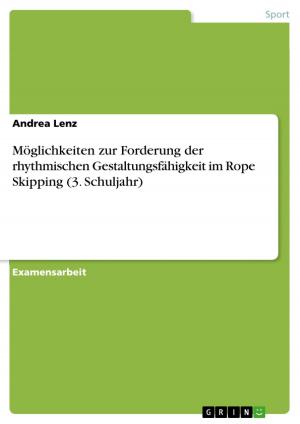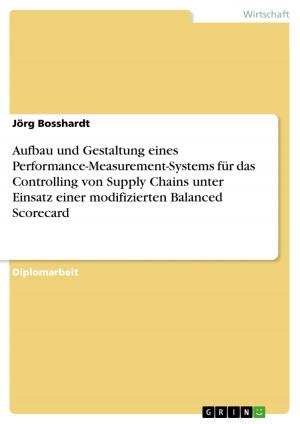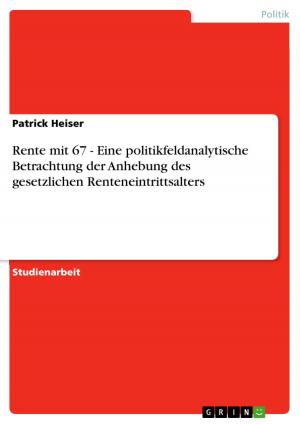The Impact of EU Structural Funds on Polish Small and Medium-sized Enterprises
Nonfiction, Social & Cultural Studies, Political Science| Author: | Joanna Mastalerek | ISBN: | 9783638349925 |
| Publisher: | GRIN Verlag | Publication: | February 14, 2005 |
| Imprint: | GRIN Verlag | Language: | English |
| Author: | Joanna Mastalerek |
| ISBN: | 9783638349925 |
| Publisher: | GRIN Verlag |
| Publication: | February 14, 2005 |
| Imprint: | GRIN Verlag |
| Language: | English |
Essay from the year 2005 in the subject Politics - International Politics - Topic: European Union, grade: A -, Jagiellonian University in Krakow (Europaeistik), course: Business and Markets in Central Eastern Europe, 27 entries in the bibliography, language: English, abstract: Poland´s accession to the EU in May 2004 is supposed to have positive long-term effects on the Polish economy. In the short-term it has considerably charged Polish companies with the burden of new costs and challenges linked to the EU accession, for instance adopting the EU´s environmental or quality standards. Particularly small and mediumsized, who are particularly sensitive to the changes in their business environment, struggle with the challenges of the EU accession and are seriously concerned by the increased competition on the internal market 1 . To cushion up these effects the EU supports Polish SMEs by means of different Community funds, whose legal basis can be found in Art. 130, 130a and 130b of the Treaty of Maastricht, stipulating that: 'In order to promote its overall harmonious development, the Community shall develop and pursue its actions in leading to the strengthening of its economic and social cohesion. [...] encouraging an environment favourable to initiative and to the development of undertakings throughout the Community, particularly small and medium-sized undertakings [...] The Community shall also support the achievement of these objectives by the action it takes through the Structural Funds (European Agricultural Guidance and Guarantee Fund, Guidance Section; European Social Fund; European Regional Development Fund), the European Investment Bank and other existing financial instruments.'
Essay from the year 2005 in the subject Politics - International Politics - Topic: European Union, grade: A -, Jagiellonian University in Krakow (Europaeistik), course: Business and Markets in Central Eastern Europe, 27 entries in the bibliography, language: English, abstract: Poland´s accession to the EU in May 2004 is supposed to have positive long-term effects on the Polish economy. In the short-term it has considerably charged Polish companies with the burden of new costs and challenges linked to the EU accession, for instance adopting the EU´s environmental or quality standards. Particularly small and mediumsized, who are particularly sensitive to the changes in their business environment, struggle with the challenges of the EU accession and are seriously concerned by the increased competition on the internal market 1 . To cushion up these effects the EU supports Polish SMEs by means of different Community funds, whose legal basis can be found in Art. 130, 130a and 130b of the Treaty of Maastricht, stipulating that: 'In order to promote its overall harmonious development, the Community shall develop and pursue its actions in leading to the strengthening of its economic and social cohesion. [...] encouraging an environment favourable to initiative and to the development of undertakings throughout the Community, particularly small and medium-sized undertakings [...] The Community shall also support the achievement of these objectives by the action it takes through the Structural Funds (European Agricultural Guidance and Guarantee Fund, Guidance Section; European Social Fund; European Regional Development Fund), the European Investment Bank and other existing financial instruments.'















